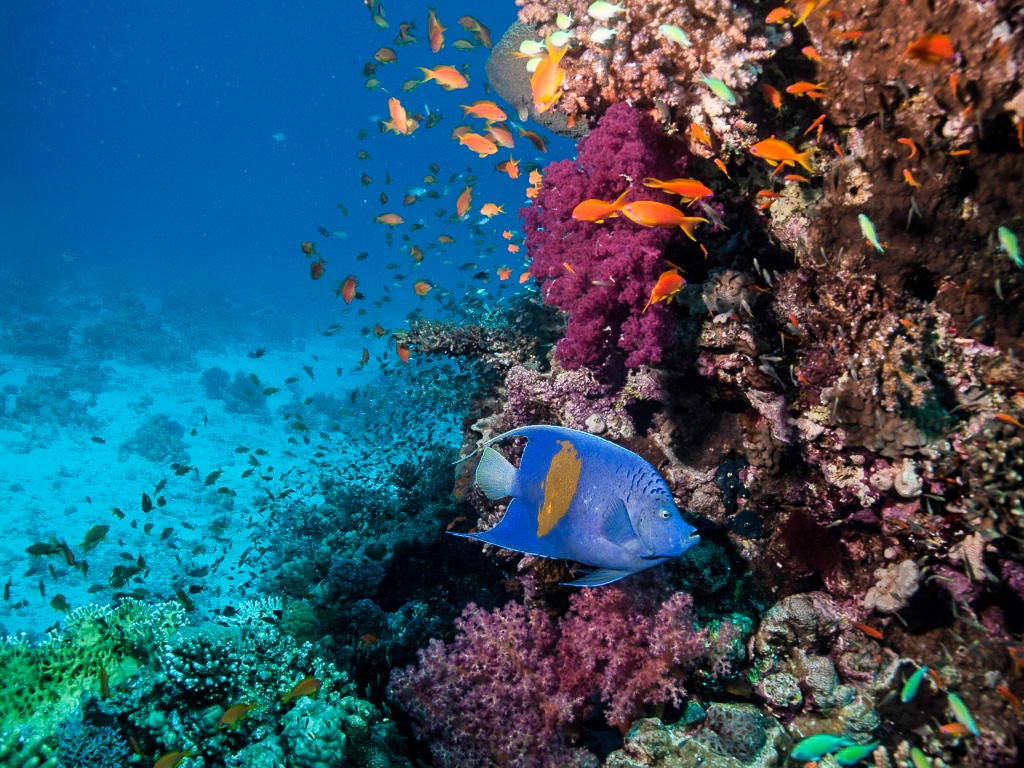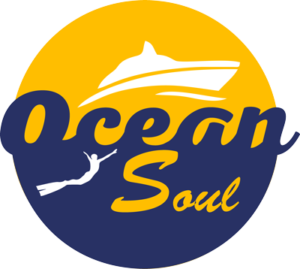Ras Mohammed
The Ras Mohammed National Park is located near the southern tip of the Sinai. It is a small headland surrounded by diverse reefs. The Shark and Yolanda Reef dive sites are probably the best known. Two large coral columns with a diameter of approx. 40 meters each, which rise right below the surface, together with a sandy terrace 10-15 meters below, the “saddle”, form the core of the reef.
Shark Reef
At the southern end of the Ras Mohammed National Park is the Shark Reef . Between the coast and the reef blocks, a beautiful coral garden has grown from a wide variety of coral species. On the outside of the large coral column there are steep walls that drop to a dizzying 800 meters. While diving along this unique marine landscape, the blue water opens up on the other side and gives divers the feeling of flying in the water.
Due to the meeting of the Gulf of Suez and the Red Sea, sometimes strong currents bring with them an extraordinary biodiversity of underwater creatures. The south side of the reef, which is particularly exposed to the current, is clad by the beautiful purple-colored soft corals that grow close together here.
Huge schools of barracudas can be seen on the steep walls. But schools of mackerel, batfish and nose doctor fish can also be admired here. The dive site gets its name from the regular visits of different species of shark that come here again and again – not only reef sharks, but also powerful deep-sea sharks.
Usually the classic drift dive along the reef is done here. A little further north is the beautiful coral terrace Anemone City , where turtles often hang out among the numerous anemones that give them their name. If the conditions are good, this can be used as a starting platform before continuing the dive with an “excursion into the blue” – in other words, the path through the open water that separates Anemone City from the wall of the Shark Reef.
Yolanda Reef :
Yolanda, which sank here in 1980, gave the Yolanda Reef its name. Most of the time, the Yolanda Reef is dived together with the Shark Reef. The transition between the two reef blocks is made close to the bottom, as there is often an offshore current.
With the reef on the right and the blue water on the left, the outside of the reef can be explored. The divers are often accompanied by large schools of pelagic species, as well as sharks and turtles. The coral garden is very diverse and densely overgrown.
The Yolanda struck the reef on its way to Aqaba in 1980 and after seven years slipped to a depth of 50 meters. It was not until some time later that the wreck disappeared completely into the blue and is now at a depth of around 150 meters. There it has its very own charm for extreme tech divers. The cargo from the wreck is still on the top of the reef and distributed in a gently sloping heap over about 15 meters. These are toilets, bathtubs and washbasins from the Ideal Standard brand. The toilet bowls have already helped many divers to take a slightly different underwater selfie. With a little imagination, you can also recognize the captain’s BMW. There are still some tires and the pedals visible. On the western side of the heap is the Satellite Reef , where you can enjoy your safety stop.



